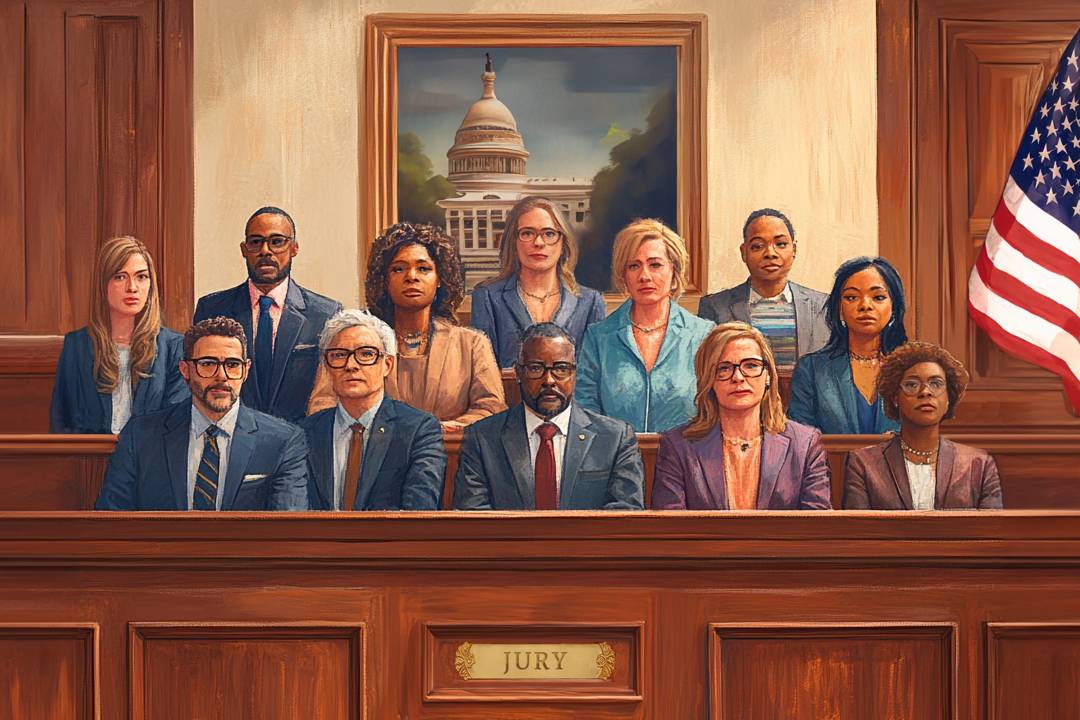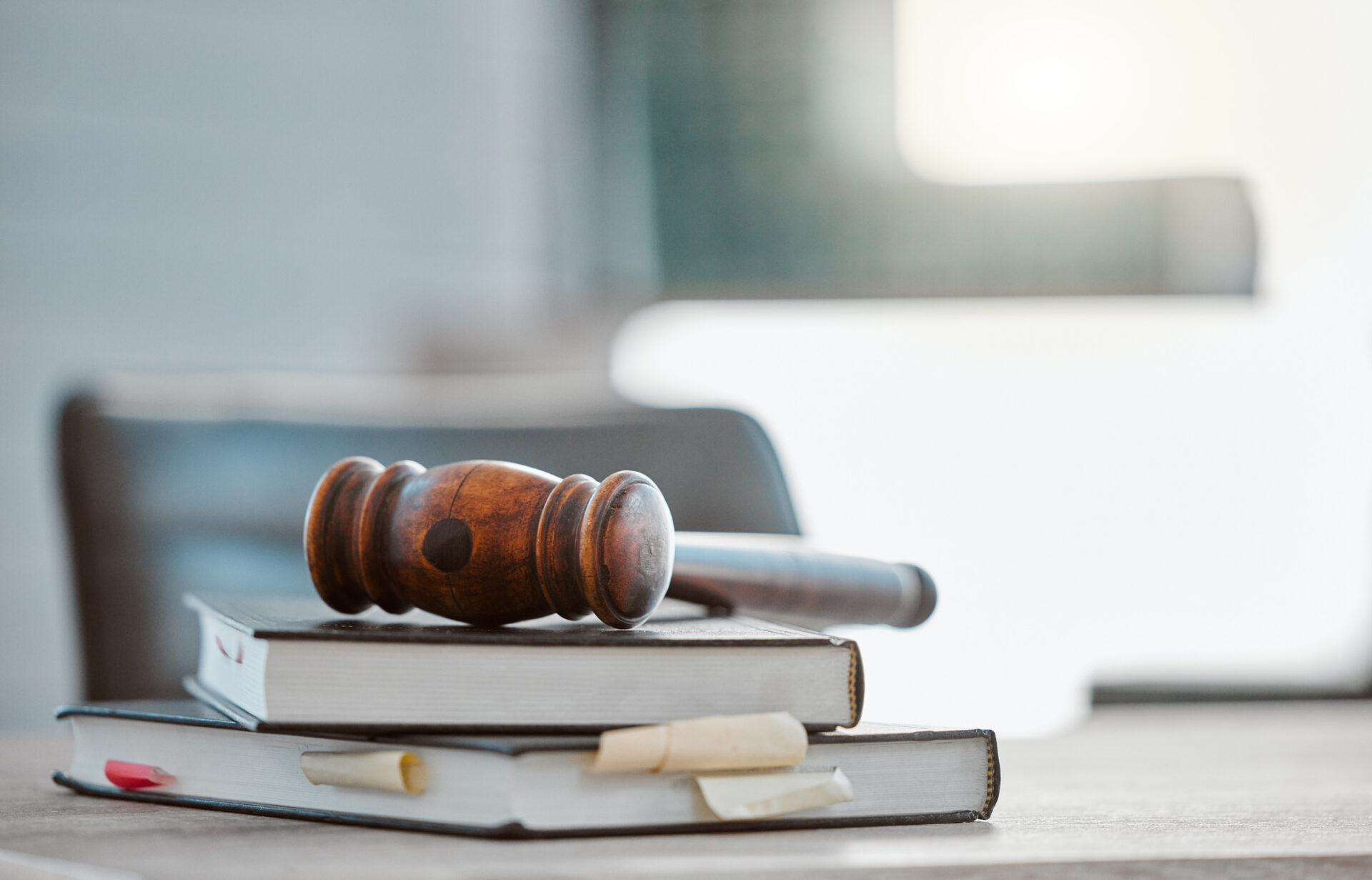In a liberal democratic society, the government’s primary responsibility is to protect the rights of its citizens. This responsibility, however, is a double-edged sword. A government strong enough to defend rights is also one that could threaten them if its power is left unchecked. The solution lies in constitutionally limiting the authority of the state and creating a framework where the rule of law, rather than the arbitrary will of those in power, prevails.
Rule of Law

Artwork commissioned by the Institute for Humane Studies
Governing Through Rules, Not Whim
The rule of law stands as a pillar of any free society. It requires that laws apply equally and impartially to everyone, regardless of wealth, status, or political connections. This is in stark contrast to the “rule of men,” where those in power exercise discretion over how and to whom laws are applied. Such discretion breeds favoritism, corruption, and resentment, undermining the foundations of a peaceful and just society.
When laws are arbitrary, unpredictable, or selectively enforced, trust in institutions erodes. Citizens come to see the state not as a protector of rights, but as a tool for the powerful to oppress or manipulate. This erosion of trust destabilizes society, increasing the likelihood of conflict. The rule of law, by contrast, establishes clear expectations and provides a measure of security that promotes both personal liberty and social harmony.
A government constrained by the rule of law is one that is less likely to infringe on individual rights.
A government constrained by the rule of law is one that is less likely to infringe on individual rights. When the law binds both citizens and the state, those in power cannot act outside of the framework established by democratic processes and constitutional principles. This limits the potential for abuse, whether by a despotic ruler or by a well-meaning official tempted to “bend the rules” for the sake of expediency.
Equality before the law is central to this principle. It ensures that no person or group is above the law and that no one is unfairly targeted or excluded from its protections. History provides numerous examples of the chaos and suffering that result when the law is applied unequally. From racial segregation in the United States to authoritarian regimes that selectively enforce rules against political dissidents, unequal application of the law undermines the legitimacy of governments and invites resistance.
The Rule of Law Advances Justice
The defense of the rule of law does not imply that all existing laws are just. In fact, the principle has been a powerful tool for those seeking to challenge and overturn unjust laws. By insisting on equality before the law, reform movements have exposed the hypocrisy of legal systems that enshrine discrimination or oppression.
The civil rights movement in the United States is a prime example. Activists did not call for abandoning the rule of law but for its consistent application. They argued that a system claiming to respect liberty and equality could not justify segregation, voter suppression, or other forms of racial discrimination. By holding governments accountable to their own standards, these movements leveraged the rule of law as a force for progress.
The rule of law is not static or conservative; it is a dynamic principle that can be used to expand freedom and promote fairness.
Similarly, movements for gender equality, labor rights, and the abolition of colonial rule have invoked the principle of equality before the law to challenge systemic injustices. These examples illustrate that the rule of law is not static or conservative; it is a dynamic principle that can be used to expand freedom and promote fairness.
A society governed by the rule of law is one that reduces the sources of conflict. When laws are applied impartially and transparently, citizens are less likely to feel alienated or marginalized. They are more likely to see institutions as legitimate and to resolve disputes through legal processes rather than through violence or rebellion.
In contrast, when laws are enforced unequally or arbitrarily, divisions deepen. If police unfairly target certain groups, for instance, those groups lose faith in the justice system and may come to view the state itself as an adversary. Such circumstances are a breeding ground for unrest, undermining the very peace that governments are supposed to protect.
The Balance of Power and Freedom
The rule of law serves as a bridge between individual freedom and collective order. It allows the state to fulfill its role as a protector of rights without becoming a predator of them. By limiting the discretion of those in power and ensuring that laws apply equally to all, the rule of law creates a framework in which freedom can thrive.
Vigilance is required to ensure that the laws themselves are just and that those tasked with enforcing them do so fairly.
This balance is delicate and must be actively maintained. Vigilance is required to ensure that the laws themselves are just and that those tasked with enforcing them do so fairly. But when the rule of law is upheld, it becomes a powerful safeguard against tyranny and a foundation for a peaceful and prosperous society.
